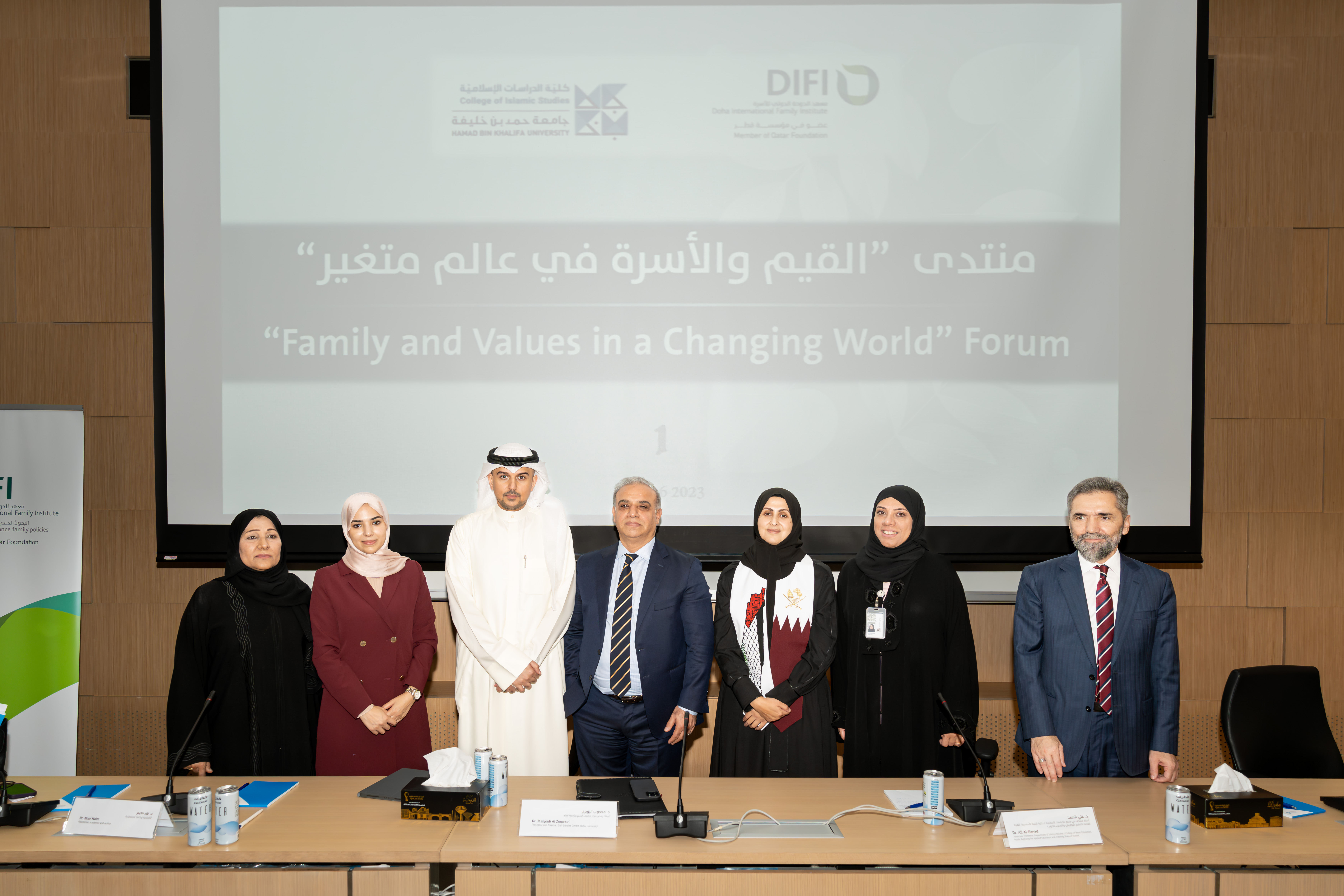
Dialogue Organized by the Doha International Family Institute (DIFI). Topic: As They Raised Me From Childhood: Specialized Programs to Better Parenting
Highlighted the importance of balancing work and family responsibilities in GCC countries, and studied the different ramifications of any work-family imbalance.
This panel discussion was based on the Institute’s mission of making family-related issues a top priority for policy-makers and introduces them at the national, regional and international levels. This Panel discussion was the first event within DIFI’s program on family-related policies in GCC countries.
Goals:
Topics of the Panel discussion
Context
Since its inception, the International Labour Organization (ILO) has attached a special interest to the balance between work and family responsibilities. In 1919, ILO issued the Maternity Protection Convention (no. 3) – and the subsequent revisions in 1952 and 2000 – which included a set of measures on maternity leave, cash benefits, breastfeeding periods and reduction of working hours. ILO also issued Convention no. 156 on Workers with Family Responsibilities (1981), which covered a number of measures to strike a balance between work and family responsibilities.
The United Nations’ Preparatory Agenda for the 20th Anniversary of the International Year of the Family in 2014 devoted special importance to the issue of balance between work and family responsibilities. The UN Economic and Social Council (ECOSOC) Resolution no. 29 of 2011 – and the following UN resolutions by the General Assembly and ECOSOC – defined three themes to guide the preparations for this anniversary, including the theme of “ensuring work-family balance”.
DIFI, in the framework of the 20th Anniversary of the International Year of the Family, organized an international conference under the patronage of Her Highness Sheikha Moza bint Nasser, Chairperson of Qatar Foundation for Education, Science and Community Development, under the theme: “Empowering Families: A Pathway to Development”. The two-day conference, held on 16-17 April 2014, announced the Doha Call to Action, calling on governments to enable families to contribute to development by taking concrete actions, including “adopting policies to ensure work-family balance, so that the responsibilities of parenting and maintaining families do not fall primarily on women, and collaborating with the private sector to protect and support workers with family responsibilities.”
In addition Doha Call to Action 2014, DIFI concerned itself with the issue of the balance between work and family responsibilities since its inception in 2006. The Institute, inter alia, held in collaboration with ILO and the International Training Centre of the International Labour Organisation the “Doha Forum on Decent Work and Poverty Reduction in Doha” on October 2011 and highlighted the issue of work-family balance. In February 2012, the Institute organized a panel discussion entitled “Protecting the Arab Family from Poverty: Employment, Social Integration and Intergenerational Solidarity” during a meeting of the United Nations Commission for Social Development at the UN Headquarters in New York. As part of the preparations to celebrate the 20th Anniversary of the International Year of the Family, DIFI held an expert meeting on “Poverty, Work-Family Balance and Intergenerational Solidarity” in June 2012 in Brussels, and another expert meeting on “Protecting the Arab Family from Poverty: Employment, Social Integration and Intergenerational Solidarity” in Doha in June 2013. The recommendations from these two meetings stressed the importance of adopting policies and programs to support the balance between work and family responsibilities.



The Doha International Family Institute (DIFI) has launched the OSRA research grant in its sixth cycle which is a research grant on Arab families and family policy related issues.
Find Out More